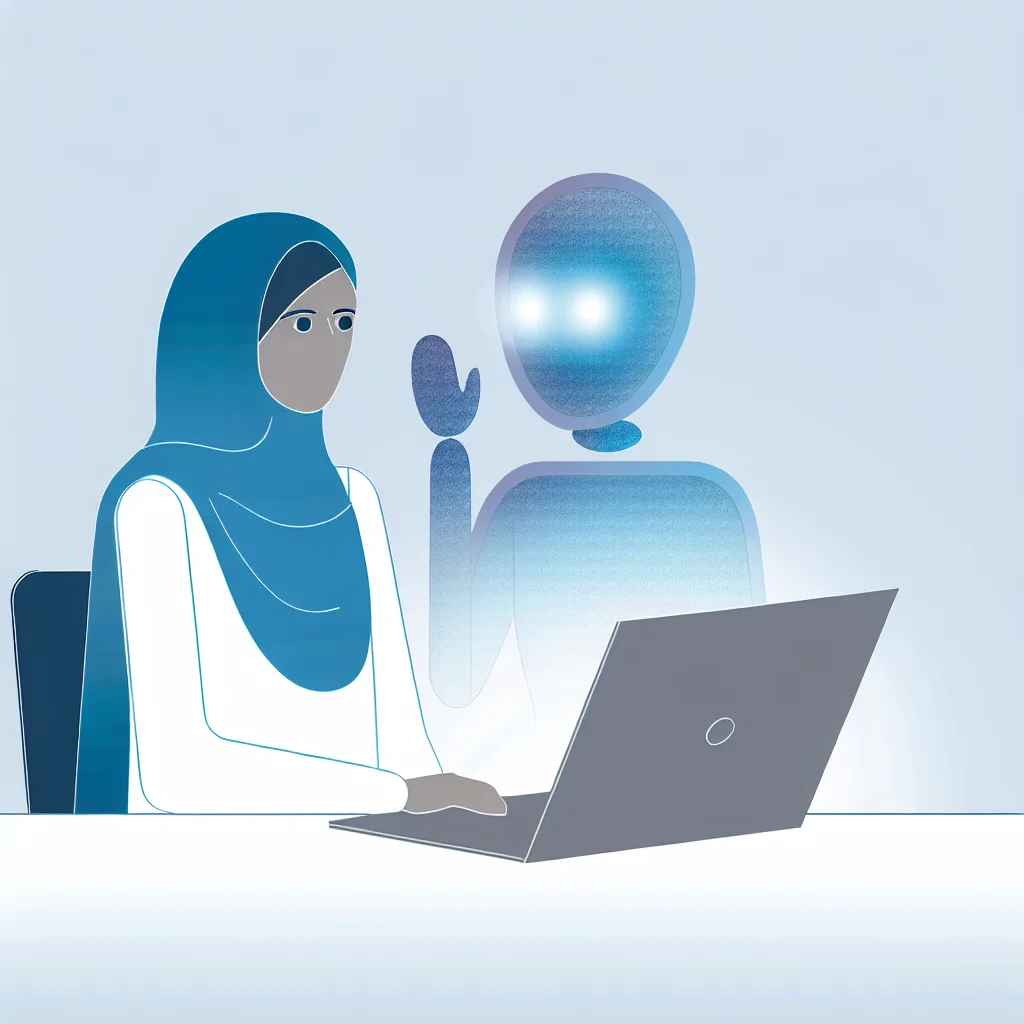The line between resourcefulness and dishonesty is getting blurry. Let’s talk about my nephew, his new job, and a whole lot of ethical questions.
I’m not what you’d call an AI guru. When all the AI tools first started popping up a few years back, I wasn’t fascinated. I was skeptical. These days, though, I’m just like everyone else. I use it to clean up an awkward email or brainstorm ideas when I’m stuck. But I’m not building automated workflows or creating custom agents. It’s a handy tool, like a calculator or spell-check. That’s why a recent conversation with my sister completely threw me for a loop and made me question the new, unwritten rules of the professional world, specifically around using AI in interviews.
Here’s the story. My 21-year-old nephew just landed a great offer at a company where I used to work. I was proud. I’d helped him get his foot in the door by passing his resume to HR—something any family member would do, right? But then my sister told me, almost as a casual aside, that he had “cheated” on all his interviews.
Cheated? How?
You guessed it. He used AI to help him answer the questions. I didn’t get all the details, but my mind immediately pictured him with one earbud in, listening to a perfectly crafted, AI-generated response during his video calls. My gut reaction was a mix of shock and, honestly, a little bit of disappointment. But then a second thought crept in: Am I just old?
What Does Cheating with AI in Interviews Even Mean?
This is the question I’ve been wrestling with. The line feels incredibly blurry. Is it “cheating” to use an AI to rewrite your cover letter and make your experience sound more impressive? Most people would probably say no. Is it cheating to have an AI on another screen feeding you perfect answers in real-time? That feels a lot closer to a yes.
Using AI in interviews isn’t a simple black-and-white issue. It exists on a spectrum:
- Preparation: Using AI to research the company, generate potential interview questions, and practice your answers. This feels like smart, modern-day prep.
- Assistance: Using it to clean up your grammar on a take-home assignment or refine the wording of a thank-you email. Again, this seems like using a tool to put your best foot forward.
- Replacement: Using it to generate answers live, passing off the AI’s words as your own spontaneous thoughts. This is where it gets ethically sticky.
The company isn’t just hiring your resume; they’re hiring you. Your ability to think on your feet, communicate your ideas, and solve problems under pressure are all part of the package. If an AI is doing that for you, are you misrepresenting your core skills?
A Generational Divide on AI and “Resourcefulness”
I’m in my early thirties, and maybe that’s the problem. I grew up in a world where you had to learn the information to pass the test. My nephew is a digital native. For his generation, using technology to solve a problem isn’t a shortcut; it’s just the default method. It’s being resourceful.
He likely sees AI as an extension of his own brain, a tool to access and organize information faster than ever before. For him, the interview wasn’t a test of his memory but a test of his ability to find the best possible answer, and he used the best tool available to do it. There’s a growing body of research on how different generations adopt and perceive technology. A Pew Research Center study highlights these divides, showing younger adults are generally more accepting and less worried about AI’s rise.
So, who’s right? Is my nephew a cheat, or am I just a relic clinging to an outdated definition of merit?
The Real Question: Is It a Tool or a Crutch?
Ultimately, this whole situation has made me think about what we’re actually trying to measure in an interview. Are we testing a candidate’s ability to perform under pressure, or their ability to deliver a polished, perfect performance?
If AI helps a brilliant but nervous candidate articulate their thoughts clearly, is that a bad thing? It could level the playing field, allowing people who are great at the job—but not necessarily at interviewing—to shine. It could help them overcome anxiety and present the best version of their professional selves.
The flip side is that it can become a crutch that hides a candidate’s actual abilities. If you rely on AI to get the job, what happens when you have to lead a meeting, handle an unexpected client question, or brainstorm with your team? The skills that interviews are designed to test—communication, critical thinking, problem-solving—are crucial for the actual job. As publications like the Harvard Business Review discuss, the hiring process itself needs to adapt to this new reality.
I still don’t know where I land. Part of me is still uncomfortable with it. But another part of me wonders if this is just the next evolution of work, and I need to get on board. My nephew got the job, and I’m sure he’ll do great. But the debate in my head is far from over.
What do you think? Where’s the line between using a tool and cheating? Let me know your thoughts.
